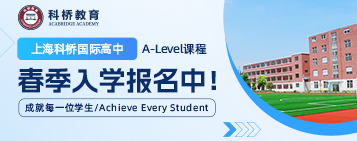新南威尔士大学电气工程硕士专业解读
2023-09-27 09:27:06 来源:中国教育在线
很多同学都很关注新南威尔士大学电气工程硕士专业解读这个问题,那么接下来就跟着中国教育在线小编一起来看看吧,相信你通过以下的文章内容就会有更深入的了解。

1.新南威尔士大学电气工程硕士专业介绍 新南威尔士大学有2个电气工程硕士:
Master of Engineering (Electrical Engineering) 8621:学生可以在信号处理、能源系统、控制系统、微系统和光子学等广泛的领域进行专业学习,并获得深度的知识。
Master of Engineering Science (Electrical Engineering) 8338:学生可以巩固专业学位,改变方向进入一个新的工程领域。以获得学科和高级学科知识为基础,并进行探究式学习。该专业提供的选修课横跨电气工程的多个子学科,让学生在选择选修课时,可以选择在一个学科中获得良好的知识深度,或通过采用多学科方法获得知识的广度。
其中,Master of Engineering (Electrical Engineering)受到澳洲工程师协会(EA)的认证(如果有移民打算,推荐这个)。
新南威尔士大学在2020QS世界大学电子与电气工程学科排名中占第35位(澳洲第一位,如下图):
2.新南威尔士大学电气工程硕士专业课程设置Master of Engineering (Electrical Engineering)
A ?核心课程(3门):
Design Proficiency
Masters Project A
Masters Project B
Masters Project C
B 四级选修课程(至少6门):
Digital and Embedded Systems Design
Microelectronic Design and Technology
Solid State Electronics
Radio Frequency Electronics
Quantum Devices and Computers
Power System Equipment
Power System Analysis
Electrical Drive Systems
Power Electronics
Power System Protection
Advanced Digital Signal Processing
Multimedia Signal Processing
Biomedical Instrumentation, Measurement and Design
Continuous - Time Control System Design
Computer Control Systems
Real-Time Engineering
C 五级选修课程(至少5门):
Mixed Signal Microelectronic Design
Radio Frequency Integrated Circuit Design
Microsystems Design and Technology
VLSI Technology
Power Electronics for Renewable and Distributed Generation
High Voltage Systems
Industrial and Commercial Power Systems
Electricity Industry Planning and Economics
Electricity Industry Operation and Control
Electrical Safety
Real-Time Digital Simulations
Digital Signal Processing Theory and Applications
Digital Image Processing
Speech Processing
Robust and Linear Control Systems
Analysis and Design of Non-linear Control
Real Computing and Control
D 工程技术管理选修课程(至少2门):
Engineering Decision Structures
Entrepreneurial Engineering
Ethics and Leadership in Engineering
Engineering Project Management
Economic Decision Analysis in Engineering
Master of Engineering Science (Electrical Engineering)
A 研究核心项目:
Project Report A
Project Report B
Engineering Postgraduate Coursework Research Skills / Engineering Postgraduate Coursework Research Skills / Launching a Startup
B 高级学科选修课程(4~6门):
Power System Protection
Mixed Signal Microelectronic Design
Radio Frequency Integrated Circuit Design
Microsystems Design and Technology
VLSI Technology
Power Electronics for Renewable and Distributed Generation
High Voltage Systems
Industrial and Commercial Power Systems
Electricity Industry Planning and Economics
Electricity Industry Operation and Control
Electrical Safety
Real-Time Digital Simulations
Digital Signal Processing Theory and Applications
Digital Image Processing
Speech Processing
Satellite Navigation: Systems, Signals & Receivers
Robust and Linear Control Systems
Analysis and Design of Non-linear Control
Real Computing and Control
Special Topics in Electrical Engineering 1
Special Topics in Electrical Engineering 2
Smart Grids and Distribution Networks
Energy Efficient Lighting and Equipment
C 学科选修课程(4~6门):
Digital and Embedded Systems Design
Microelectronic Design and Technology
Solid State Electronics
Radio Frequency Electronics
Quantum Devices and Computers
Power System Equipment
Power System Analysis
Electrical Drive Systems
Power Electronics
Advanced Digital Signal Processing
Multimedia Signal Processing
Biomedical Instrumentation, Measurement and Design
Continuous - Time Control System Design
Computer Control Systems
Real-Time Engineering
Optical Circuits and Fibres
Network Performance
Wireless Communication Technologies
Mobile and Satellite Communications Systems
Digital Modulation and Coding
D 工程与技术管理选修课程(1~4门):
Principles of Programming
Environmental Management
Sustainability Assessment and Risk Analysis
Managing Energy Efficiency
Engineering Decision Structures
Academic Discourse in Engineering
Entrepreneurial Engineering
Ethics and Leadership in Engineering
Engineering Statistics and Experiment Design
Process and Product Quality in Engineering
Strategic Manufacturing Management
Industrial Management
Production Planning and Control
Optimization
Introduction to Probability and Stochastic Processes
Sustainable Energy for Developing Countries
Sustainable and Renewable Energy
Sustainable Energy in Developing Countries
Renewable Energy System Modelling & Analysis3
新南威尔士大学电气工程硕士专业关键信息
学制:2年
开学时间:2月,6月,9月
学费:47280澳元/年(2020年)
学术要求:
本科相关专业,985/211院校均分72%,双非院校均分76%
语言要求:
雅思:6.5.单项6
托福:90.写作23.其他单项22
PTE:64.单项54
就业前景:
从新南威尔士大学的电气工程硕士毕业后,学生将作为一名电气工程师,在电信、国防、能源、自动化等领域工作。
加拿大学费怎么交
1、电汇:相比之下,电汇比较快,一般两天可以到账,但手续费相对较高,最低20元,最高则达1000元,此外电汇还要缴纳电报费以及国外中间行的扣费。如果要电汇,要让学校提供电汇地址(银行账户和地址)。
2、汇票:票汇是银行给汇款人开出汇票,然后本人携带汇票出国,或者采取邮寄的方式把汇票寄往国外。票汇不收电报费,其他收费项目和标准与电汇相同。虽然票汇的费用相对便宜一些,但是它没有电汇的速度快,而且票汇需要到开票行的国外网点或开票行的指定托收行办理解付手续。
大额汇款最好采取电汇的方式,因为汇票一旦遗失,挂失等手续相对麻烦一些,而且汇票有一年的有效期,过了有效期就会退回到原来的开票行。
3、信用卡:可以到本地银行办理一张国际信用卡,用国际信用卡在国外取现金就不划算了,如中行的长城国际卡在国外取现,会按取款金额的百分之三收取手续费。
通过上文的内容介绍,大家对“新南威尔士大学电气工程硕士专业解读”大家是不是有了一个大致的了解呢?如果大家还想了解更详细、更多的相关内容,则可以继续关注本频道,也可以向本频道咨询。
>>免费领全球留学白皮书,了解各大学报考条件、费用、开学时间、含金量<<

















